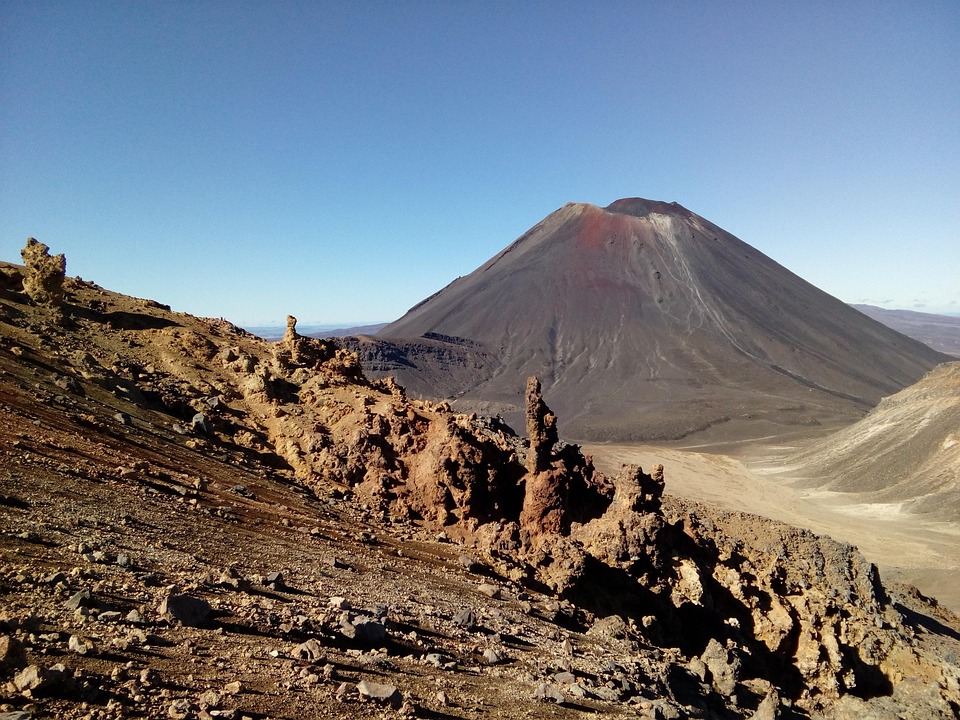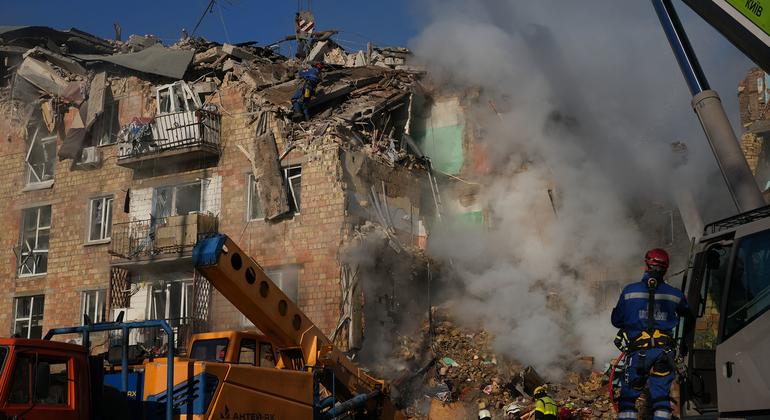The national climate strategy of Indonesia aims to make net-zero emissions by 2060. A key element of this strategy is to absorb 140 million tonnes of CO₂, equivalent to removing 30 million out of the road.
Riau’s contribution to this objective is essential.
The province has historically faced some of the highest levels of deforestation and land degradation, largely due to the drainage of peat bogs, fires and the rapid conversion of land use in agriculture.
Green for Riau
Launched earlier this year, the Green for Riau initiative transforms the implementation of forest climatic solutions to these challenges.
“Economic and climatic objectives can coexist a lot,” said Abdul Wahid, governor of Riau. “This is what our program is talking about. We are proud to show the way by showing that local action can provide world results. ”
The new initiative, a collaboration between the Government of Indonesia, the United Nations environmental program (Dive) and the organization of food and agriculture (Fao), with the support of the United Kingdom, already finds local solutions to global problems.
Indonesia is home to large tropical forests.
Local leadership is essential
Local leadership is essential to carry out the Sustainable development objectives (ODD). While national governments adopt legislation and set up the political framework, the implementation of these policies is the responsibility of local authorities who lead the transition to a green economy.
Almost half of the seven million riau residents live in rural areas, many of whom depend on the forests for their livelihoods. The initiative supports these communities through sustainable agroforestry, ecotourism and unleashed forest products, ensuring that conservation efforts go hand in hand with economic development.
“By aligning provincial action on the national climatic objectives, Riau shows how sustainable development objectives can be achieved from zero,” said Gita Sabharwal, resident coordinator of the UN for Indonesia, when she returned from Riau last month. “This shows how local leadership can stimulate the national and global impact.”
Reduction of emission discounts
At the heart of the transformation is the REDD +mechanism, which means reducing the emissions of deforestation and the degradation of forests.
The mechanism supports and rewards the measurable discounts of emissions. Riau, with almost five million hectares of peat bogs rich in carbon, is about to become the first province of Indonesia to access Redd + Finance.
The approach also consists in marrying technology with consent and customary knowledge. International organizations calculate carbon credits using artificial intelligence tools (AI), satellite imaging, field verification and carbon forecasts, in accordance with Global Redd +directives.
The meeting of generations of local wisdom
Beyond forest surveillance, AI can generate robust data necessary to unlock climate financing, supporting emissions monitoring, verification and sharing of benefits.
You cannot fully depend on the AI for environmental decision -making; He must take into account traditional practices developed from the observation of nature for generations
However, the effectiveness of these new technologies, in particular in environmental decision -making, depends on the knowledge included as a starter.
To be transformers, AI systems must be designed to respect, integrate and learn customary knowledge systems.
“You cannot fully depend on the AI for environmental decision -making,” said Datuk H. Marjohan Yusuf, president of the council of the Coutumier Malaysi de Riau Institute.
“He must take into account Adat, Or local wisdom, traditional practices have developed and learned from nature observation for generations. »»
During the launch of Green for Riau, customary communities signed a joint declaration, aligning national legal frameworks and policies which recognize and strengthen the rights and roles of customary communities in matters of forest protection.
This commitment will guide the development of guarantees and the distribution of advantages in accordance with the information system for social guarantees of Indonesia in accordance with national and international standards.
“This project not only protects forests; It also empowers communities, ”said Marlene Nilsson, assistant director of the UNEP in Asia-Pacific. “Riau leadership is a model to manage climate action while supporting livelihoods and biodiversity.”
Green Riau is a joint effort with Indonesia, local leaders and United Nations agencies to protect forests and advance climatic objectives.
Inclusive climate financing model
With the support of the United Nations and the participation of the community, new diagrams under REDD + offer incentives to local populations to safeguard rather than exploit forests. This also strengthens the governance of land use and implements financial executives to attract public and private investments in forests.
The advantages go beyond carbon. Riau is home to emblematic and threatened species such as the Orang-Outan Sumatra, the Tiger and the Elephant. The protection of these habitats saves biodiversity and improves climate resilience.
The initiative pilots payments based on REDD + results at the provincial level, providing an evolutionary model for inclusive and high integrity forest financing. This will be done thanks to the facilitation by REDD of mutual recognition agreements between the government and the international carbon credits programs.
The forest transition could unlock millions
These efforts could unlock hundreds of millions of dollars a year in carbon financing and develop an investment pipeline, creating a sustainable financing flow for conservation and development.
“Riau becomes the first Indonesian province to adopt global standards for sustainable forest management,” said Sabharwal. “This daring step will unlock high integrity, results -based payments and show how global standards can result in sustainable and inclusive growth.”
During the Redd + 2025 investment round table in London, global investors expressed a strong interest in supporting the riau forest transition, said Ms. Nilsson, providing an example for other jurisdictions in Indonesia and beyond.
“The interest of funders indicates that climatic solutions anchored in local leadership and customary knowledge is not only, but viable,” she said.
Originally published at Almouwatin.com








